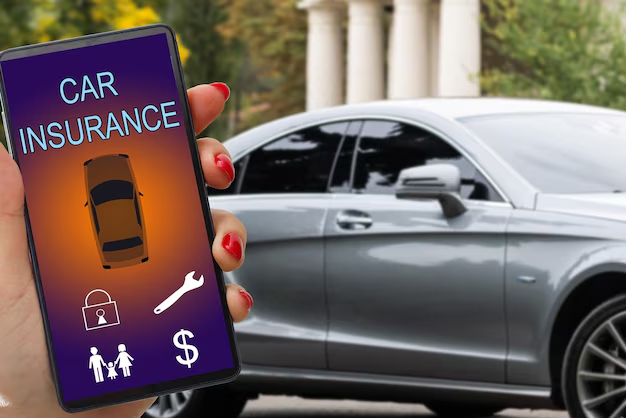Auto insurance is a financial safety net that protects you, your vehicle, and others in case of accidents, theft, or damages. It’s a contract between you and the insurance company, where you pay a premium, and in return, the insurer agrees to cover certain expenses outlined in your policy. Auto insurance is not only a smart financial choice but is also legally required in most places to drive on public roads.
Here’s a detailed explanation of what auto insurance is and why it’s essential.
What Is Auto Insurance?

Auto insurance is a type of contract designed to provide financial protection against losses related to your vehicle. Policies typically include different types of coverage, each addressing specific risks, such as collisions, theft, or injuries.
- Types of Auto Insurance Coverage:
- Liability Coverage: Pays for damages or injuries you cause to others in an accident.
- Collision Coverage: Covers the cost of repairing or replacing your vehicle after an accident.
- Comprehensive Coverage: Covers non-collision-related damages, such as theft, vandalism, or natural disasters.
- Personal Injury Protection (PIP): Covers medical expenses and lost wages for you and your passengers.
- Uninsured/Underinsured Motorist Coverage: Protects you if you’re involved in an accident with a driver who has little or no insurance.
Why Do You Need Auto Insurance?
1. Legal Requirement
In most states and countries, having at least a minimum level of auto insurance is mandatory to drive legally. Failure to maintain the required coverage can result in fines, license suspension, or other legal consequences.
2. Financial Protection
Accidents can be costly, with expenses for vehicle repairs, medical bills, and legal liabilities. Auto insurance helps cover these costs, saving you from potentially significant out-of-pocket expenses.
3. Protects Against Liability
If you cause an accident, you could be held legally responsible for damages and injuries. Liability coverage ensures that these costs are covered, reducing your personal financial risk.
4. Covers Vehicle Damage
Whether it’s a minor fender-bender or a major collision, repairs can be expensive. Collision and comprehensive coverage ensure your car is repaired or replaced without draining your savings.
5. Safeguards Against Unforeseen Events
Auto insurance provides protection against unexpected incidents, such as:
- Theft or vandalism.
- Natural disasters like floods or hailstorms.
- Hitting a deer or other animals.
6. Peace of Mind
Knowing that you’re financially protected in case of an accident or other mishaps can reduce stress and allow you to focus on driving safely.
How Does Auto Insurance Work?
- Choose a Policy: You select a policy with the type and amount of coverage you need.
- Pay Premiums: You pay monthly or annual premiums to maintain coverage.
- File a Claim: If an accident or covered event occurs, you file a claim with your insurer.
- Receive Compensation: The insurer pays for the covered expenses, minus any deductible you’re responsible for.
Conclusion
Auto insurance is a crucial aspect of responsible vehicle ownership. It not only provides financial protection but also ensures you comply with legal requirements. By understanding your coverage needs and choosing the right policy, you can drive with confidence, knowing you’re prepared for the unexpected.
FAQs
Q1. What is the minimum auto insurance coverage required by law?
A: The minimum coverage varies by state or country but usually includes liability insurance for bodily injury and property damage. Some places may also require personal injury protection (PIP) or uninsured/underinsured motorist coverage. Check your local laws for specific requirements.
Q2. What factors affect auto insurance premiums?
A: Factors influencing premiums include:
- Your driving history (accidents, tickets, etc.).
- Age, gender, and marital status.
- The type, age, and value of your car.
- Where you live (urban areas often have higher rates).
- Coverage limits and deductibles.
- Credit score in some regions.
Q3. Is comprehensive and collision coverage necessary?
A: While not legally required, these coverages are recommended if your car is valuable or financed. Comprehensive covers non-collision damages like theft or natural disasters, while collision covers repair or replacement after an accident.
Q4. What happens if I drive without auto insurance?
A: Driving without insurance can result in penalties such as:
- Fines or fees.
- Suspension of your driver’s license.
- Vehicle impoundment.
- Higher insurance premiums in the future.
- Legal liability for damages and injuries in an accident.
Q5. Does auto insurance cover rental cars?
A: Most auto insurance policies extend coverage to rental cars for liability and, sometimes, collision and comprehensive coverage. However, it’s essential to check your policy details or consider the rental company’s insurance options.
Q6. How do deductibles work in auto insurance?
A: A deductible is the amount you pay out of pocket before your insurance kicks in. For example, if your deductible is $500 and your repair costs are $2,000, you pay $500, and the insurance covers the remaining $1,500.
Q7. Can I lower my auto insurance premiums?
A: Yes, you can lower premiums by:
- Maintaining a clean driving record.
- Bundling auto insurance with other policies.
- Increasing your deductible (if financially feasible).
- Installing safety features in your car.
- Taking advantage of discounts (e.g., for good drivers or students).

